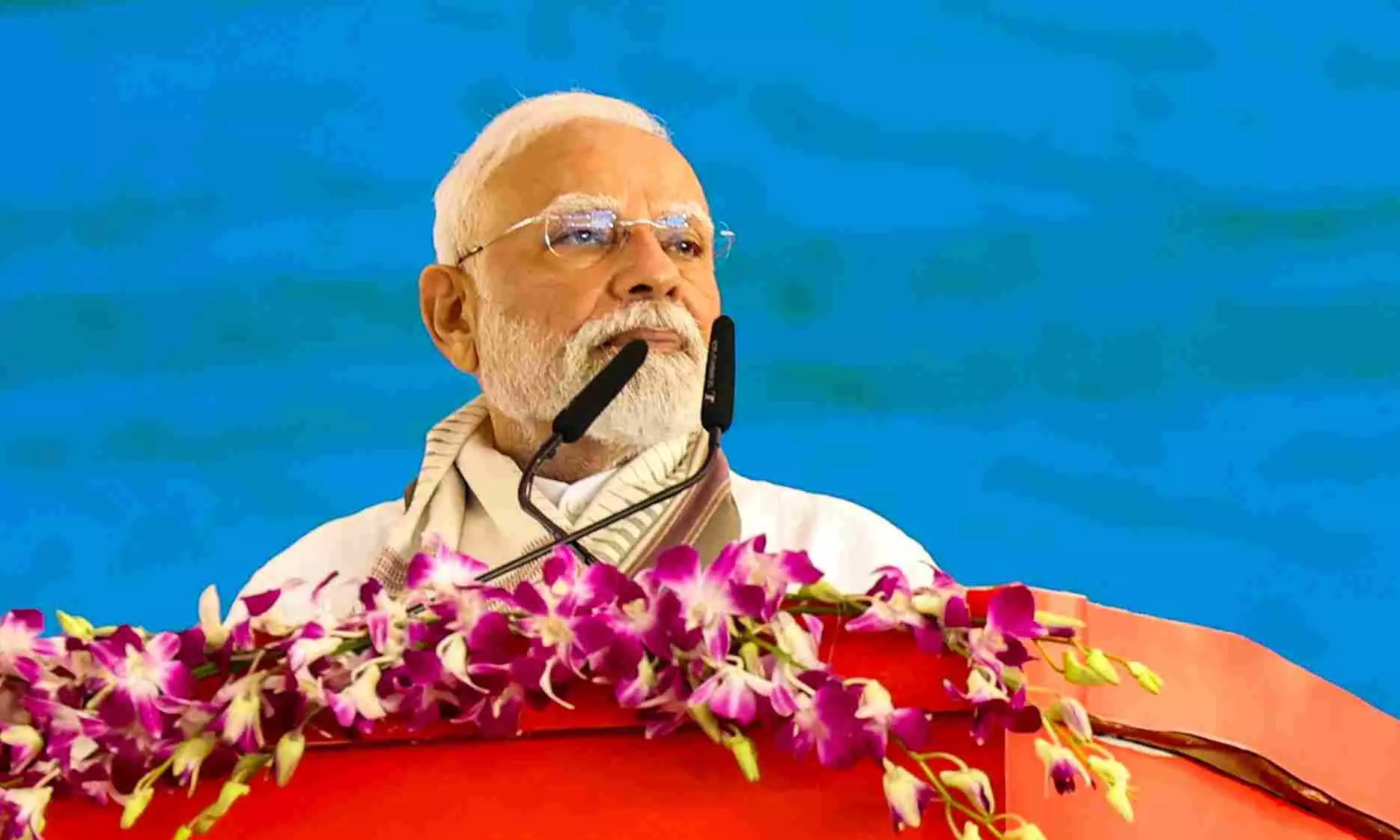
“If a jailed clerk can be suspended, why not PM?”: Modi backs bill to remove jailed ministers
Addressing a rally, PM Modi questioned the disparity where government employees are suspended if jailed for 50 hours, while leaders can sign files from prison

Prime Minister Narendra Modi on Friday (August 22) defended the recently introduced constitutional amendment bill that allows the Centre to remove any jailed minister.
Addressing a rally in poll-bound Bihar’s Gayaji, he said the government employees are suspended if jailed for even 50 hours and questioned why the same rule should not apply to the prime minister, chief minister, or other ministers.
Combating corruption
“... If a government employee is imprisoned for 50 hours, then he is suspended automatically, be it a driver, a clerk or a peon. But a CM, a minister, or even a PM can enjoy staying in the government even from jail,” Modi said at the rally.
Also read | ‘130th Constitution Amendment Bill can be misused to topple rivals before polls’ | Capital Beat
Modi said the NDA government has enacted a law to tackle corruption, which applies even to the prime minister. “Some time ago, we saw files being signed and government orders issued from jail. If leaders behave this way, how can we fight corruption? The NDA government has brought a law against corruption, and the prime minister too comes under its purview,” he added.
Bill introduced in LS
Union Home Minister Amit Shah on Tuesday introduced three bills in the Lok Sabha, including the Constitution (One Hundred and Thirtieth Amendment) Bill, 2025. The bill proposes that the prime minister or chief ministers can be removed if they are detained for 30 consecutive days on charges of corruption or serious offences.
Since these bills permit action on mere allegations without requiring a proven conviction, the Opposition has termed them unconstitutional. Critics fear they could enable the Centre to remove any sitting chief minister or minister by targeting them through central agencies such as the ED and CBI.
The reference to the Joint Parliamentary Committee (JPC), which was already part of the government’s agenda, came after Opposition MPs created a massive uproar in the Lok Sabha when Shah attempted to table the bills.

